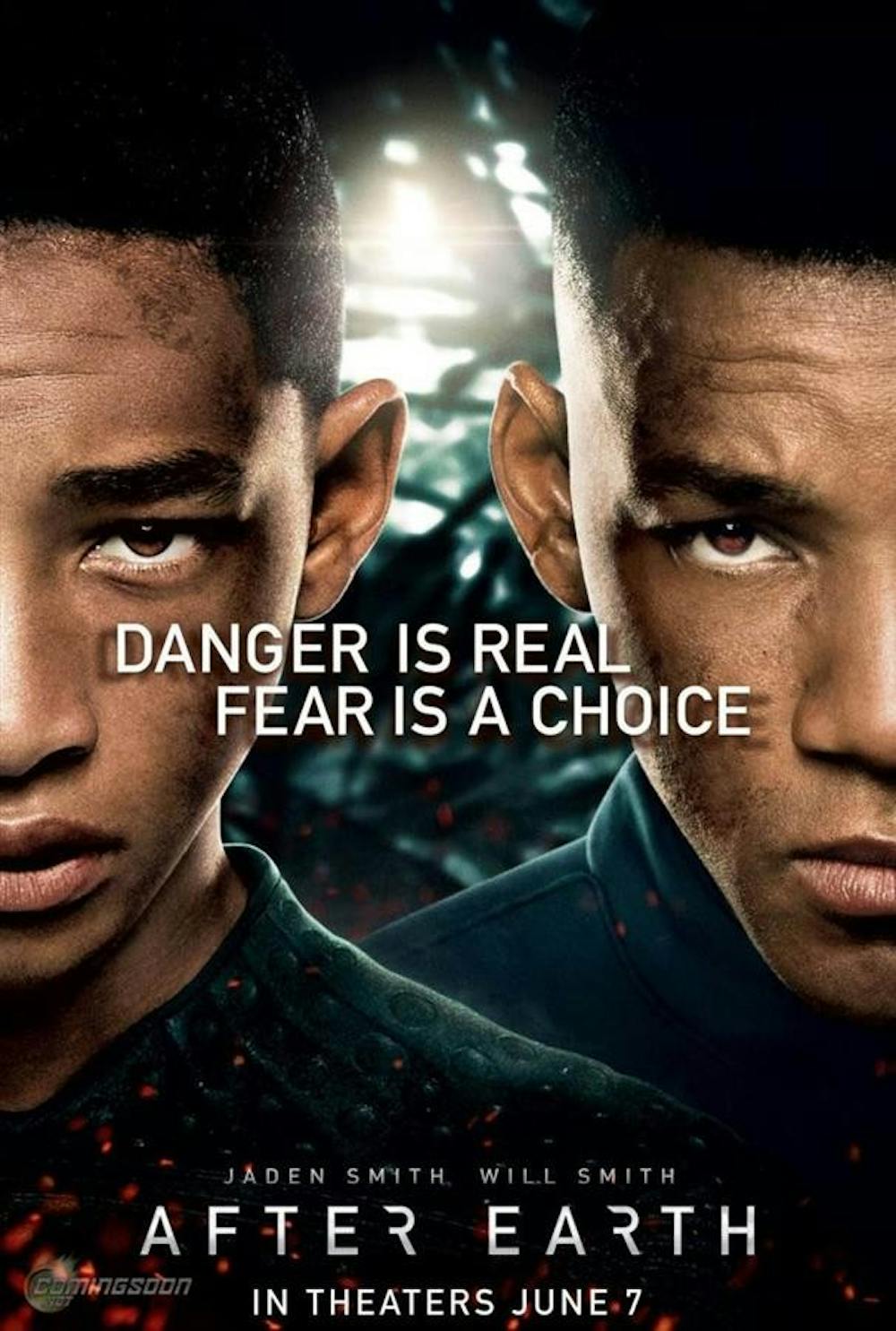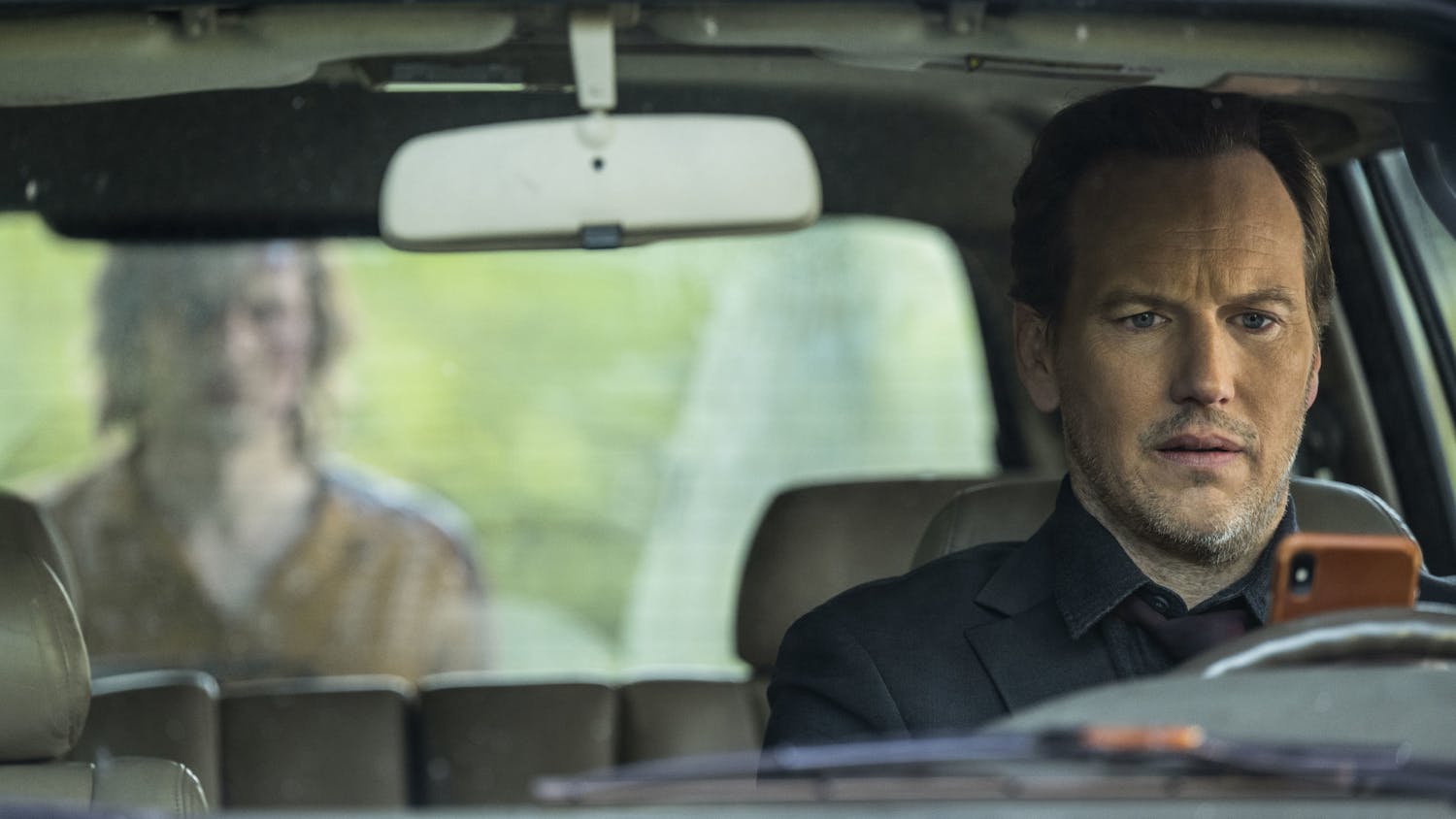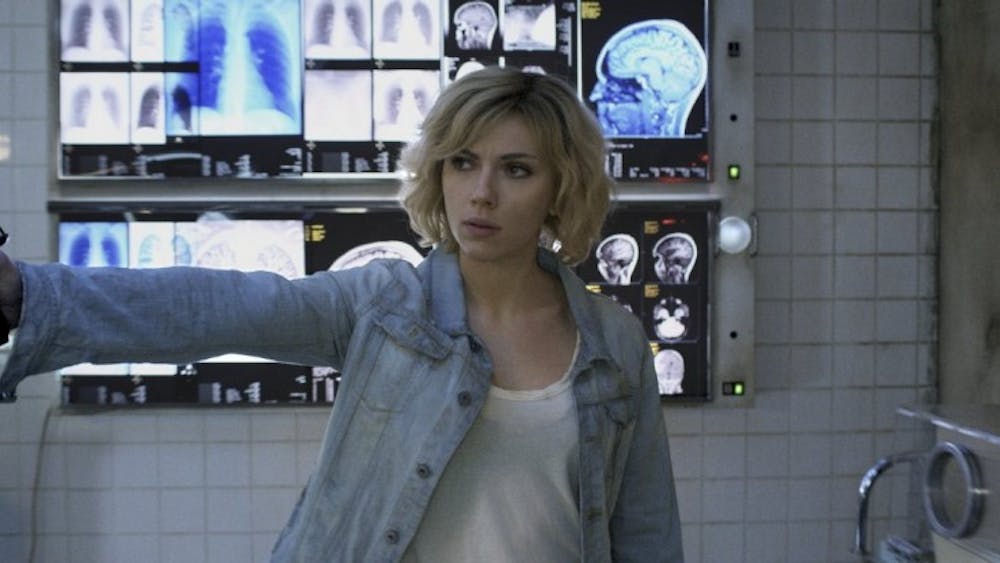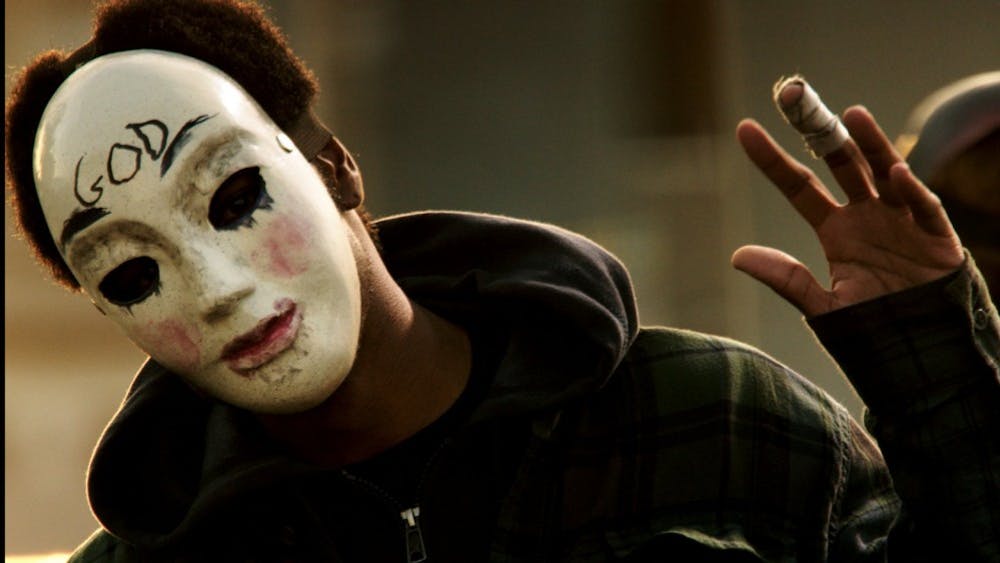It’s doubtful that even M. Night Shyamalan would be capable of devising a twist ending as bizarre and convoluted as his own career. In the span of fourteen years, the one-time visionary director has gone from Academy Award nominations to the ruler of the Golden Raspberries for worst picture. His new film After Earth, a post-apocalyptic (is anyone else sick of this theme?) action flick set 1,000 years in the future, though far from being the director’s worst accomplishment, is a plodding, predictable, melodramatic mess that’s no fun for anyone, least of all the actors.
Considering Shyamalan’s early penchant for psychological depth, it’s odd to see the director take such a blockbuster premise as the post-apocalyptic one, which every year spits out another dozen or so films of questionable creative merit. Zombies, tyrannies, world war; choosing between these catastrophes is like choosing between different colored M&M’s.
In After Earth, we follow the mass evacuation of Earth to a neighboring, presumably more hospitable planet (whose name I forget), whereupon it is discovered that someone made a gross miscalculation of the surrogate home. This one is considerably more dangerous than Earth and is populated by a race of fearsome, ugly devils known as Ursas, who, though blind, track and hunt humans by smelling pheromones excreted through fear. Fortunately, an elite band of rangers has stumbled upon the means of overcoming fear through sheer willpower. Will Smith, playing a sort of he-man named Cypher Raige, is the leader of the rangers who, with his son/spirited lackey Kitai (Jaden Smith), is forced to make an emergency crash landing on Earth during a transportation mission gone awry. With Smith senior lying crippled and with their distress flare over 100 kilometers away, the film becomes both a search and rescue and an opportunity for the junior Smith to prove his worth to his father by finding and then shooting the flare off. I
t gives nothing away to say that an hour and a half later, the film climaxes with Smith junior holding up the flare in search of a signal. In another life, Shyamalan could have been making Verizon commercials.
Ostensibly the overarching story of what happens when we let global pollution go unchecked (spoiler alert: it’s bad), After Earth is more the story of a robot infestation that takes prominent actors as its hosts and drains all life and emotion out of them. At least, this is what the viewer is led to believe given Shyamalan’s camerawork, which places the actors front and center of every shot like an awkwardly direct interview or a video confessional.
This wouldn’t be so bad if Smith senior — whose cropped hair, placid eyes, and ashy skin looks like a burnt-out Obama after a fifth or sixth term — were allowed to show even the slightest bit of character. He may be fearless, but drill sergeants, Terminator and even Neo from The Matrix were allowed to say something ironic, or at least crack a smile. Smith doesn’t allow himself even one moment of humor — his dialogue is half Boy Scout instruction manual (poisonous plants to be found here, medicine to be injected here) and half preachy monologuing, so contrived and hastily placed that the White Out is still fresh from where it was copy and pasted. It’s a miracle that he even manages to keep a straight face with Shyamalan looming uncomfortable inches away from him, camera poised to capture yet another of these moments.
But all this being said, the main problem with After Earth is the same problem the director’s had for the past decade. He takes himself, and his actors, far too seriously for anyone’s own good. The result: uncomfortably long scenes that linger and weigh like an inappropriate dinner comment, with actors looking as though they just farted somewhere public and are now wishing that they were somewhere, anywhere else.
Yes, the world may be gone, but we’re still here, and though that may not be worth a laugh, it’s at least worth a smile. “She had too much old chat in her about politics and earthquakes and the end of the world,” said Molly Bloom in James Joyce’s “Ulysses.” “Let us have a bit of fun.”
Is that really too much to ask?
After Earth

Get stories like this in your inbox
Subscribe




